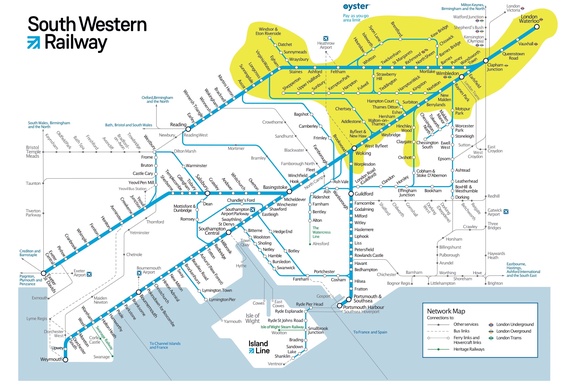Performance modelling of May 21 and May 22 timetable on SWR network
Understanding the impact of train occupancy on timetable performance
The South Western Railway mainline connects London Waterloo station to the south coast of England. Two of the mainline’s four tracks are used for express services and two for local services. During peak time the express line operates up to 24 trains per hour for each direction. This density of service increases the probability of delays that quickly propagate to other trains despite the high density of block sections.
To evaluate timetable punctuality and robustness, trenolab evaluated the performances of the May21 and May22 timetables for the entire SWR network. The simulation area included also the single track lines to Exeter and Weymouth, including splits and joins at Bournemouth and Salisbury stations, but excluded the Bristol line.
The timetable performance were assessed using stochastic simulations for different scenarios. In each scenario the stopping times for each train on the entire network were determined using different estimates of train occupancy and expected passengers. Thus, by varying the input delay distribution and the demand models, the results of the project revealed the effects of demand on timetable punctuality.
Our tasks:
- Operations analysis
- Timetable refinement
- Microscopic simulation model calibration
- Microscopic stochastic simulation
- 2022/02 - 2022/07
- UK
- Network Rail
- Timetable Planning
- TRENOplus, TRENOanalysis, trenissimo

